Efficiency & Sustainability / Energy Efficiency
Basic Energy Efficiency Practices & Reporting
The following guidance is provided to assist applicants seeking to be licensed as an adult-use Marijuana Establishment (ME) under 935 CMR 500.000: Adult Use of Marijuana. This guidance also applies to Medical Marijuana Treatment Centers (MTCs, formerly known as Registered Marijuana Dispensaries), seeking to be licensed under 935 CMR 501.000: Medical Use of Marijuana. Please note that Cultivation Facilities, whether licensed as an ME or MTC (ME/MTC), must also comply with additional requirements set forth in Guidance on Energy Efficiency Standards & Reporting for Cultivation Facilities [see page 10].
All applications submitted on or after July 1, 2020, if they are not otherwise exempted, must comply with the energy efficiency standards and reporting requirements described in this guidance. This guidance is not legal advice. If you have questions regarding the legal requirements for licensure in the Commonwealth, you are encouraged to consult an attorney. An ME/MTC is responsible for complying with any revisions to this guidance that may be issued if legal or regulatory requirements change.
Application Process
Consideration of energy efficiency and conservation should occur during the application process and throughout the operational life of a facility. During the application process, an ME/MTC must submit a summary of their written operating procedures regarding energy efficiency and conservation as part of their Management and Operation Profile in accordance with 935 CMR 500.101(1)(c)10. and 500.105(15), or 935 CMR 501.101(1)(c)10. and 501.105(15). As part of the Architectural Review process, additional information should be submitted at the same time as building plans after receipt of a Provisional License. Please note that applicants seeking a Transporter or Delivery license have different issues, which are addressed in a separate section below.
An ME/MTC is required to engage in:
- Identification of potential energy-use reduction opportunities (such as natural lighting and energy efficiency measures), and a plan for implementation of such opportunities;
- Consideration of opportunities for renewable energy generation, including, where applicable, submission of building plans showing where energy generators could be placed on the site, and an explanation of why the identified opportunities were not pursued, if applicable;
- Strategies to reduce electric demand (such as lighting schedules, active load management, and energy storage); and
- Engagement with energy efficiency programs offered pursuant to M.G.L. c. 25, § 21, or through municipal lighting plants.
The guidance will go through each item above.
Energy-Use Reduction
Identification of potential energy-use reduction opportunities and a plan for implementation of such opportunities.
There are many opportunities in an ME/MTC to reduce energy usage and costs through energy efficient equipment and operations. Lighting is a major energy user in everything from retail spaces, to cultivation, and back-office operations. Heating and air conditioning are also large drivers of energy use for all buildings in the Northeast. It is recommended that the design team for an ME/MTC include energy professionals who will review facility and equipment needs and make recommendations for optimal facility equipment choices based on energy usage.
The applicant must address how its written operating procedures in the Management and Operations Profile packet will incorporate the following elements:
- Description of how the ME/MTC will monitor energy consumption and make adjustments to operations based on energy-usage data;
- Procedures for identifying energy savings opportunities as part of any facility upgrades, renovations, or expansions; and
- Procedures for identifying energy savings opportunities when equipment fails and needs to be replaced.
At the Architectural Review stage, further information should be submitted to demonstrate actual consideration of energy reduction opportunities, including a list of energy reduction opportunities that were considered. Information should include whether opportunities are being implemented, will be implemented at a later date, or not planning to be implemented. An ME/MTC should also include a summary of information that was considered to make the decision (i.e. costs, available incentives, and bill savings). As a general matter, submission of a Mass Save® or Municipal Light Plant (MLP) audit report or rebate applications should suffice to demonstrate compliance with this item.
Renewable Energy
Consideration of opportunities for renewable energy generation, including, where available, submission of building plans showing where energy generators could be placed on the site, and an explanation of why the identified opportunities were not pursued, if applicable.
Renewable energy such as solar panels, wind turbines, and renewable thermal can reduce and stabilize energy costs for an ME/MTC. The applicant must address how its written operating procedures in the Management and Operations Profile packet will incorporate the following elements:
- Description of how the ME/MTC will make energy supply decisions and regularly evaluate renewable options;
- Procedures for identifying renewable or alternative energy opportunities as part of any facility upgrades, renovations, or expansions; and
- Procedures for identifying renewable or alternative energy opportunities when equipment fails and needs to be replaced.
At the Architectural Review stage, further information should be submitted to demonstrate actual consideration of renewable energy generation opportunities, including a list of renewable or alternative energy reduction opportunities that were considered. Information should include whether opportunities:
- Are being implemented;
- Will be implemented at a later date; or
- Are not planned to be implemented.
An ME/MTC should include a summary of information that was considered to make a decision (i.e. costs, available incentives, and bill savings). ME/MTCs should consider incentives through programs which can help offset costs of renewable and alternative energy installation, such as:
Reducing Energy Demand
Strategies to reduce electric demand (such as lighting schedules, active load management, and energy storage).
Demand is how much electricity an ME/MTC can use at a given time in its facility – more demand means more electricity capacity is needed, and an ME/MTC pays for this capacity on electricity bills.
The applicant must address how its written operating procedures in the Management and Operations Profile packet will incorporate the following elements:
- Description of how the ME/MTC will monitor energy demand and make adjustments to operations based on data; and
- Procedures for participation in load curtailment, energy storage, or other active demand management programs (as applicable).
At the Architectural Review stage, further information should be submitted to demonstrate actual consideration of demand reduction opportunities, including whether opportunities are being implemented, will be implemented at a later date, or not planning to be implemented. Include a summary of information that was considered to make a decision (i.e. costs, available incentives, and bill savings). As a general matter, submission of a Mass Save® or MLP audit report or rebate applications should suffice to demonstrate compliance with this item.
Energy Efficiency Programs
Engagement with energy efficiency programs offered pursuant to M.G.L. c. 25, § 21, or through municipal lighting plants.
The Mass Save® programs provide financial incentives for energy efficiency and demand reduction measures, including efficient lighting, heating ventilation and air conditioning (HVAC), and other equipment. These programs are available to homes and businesses across the Commonwealth. For communities where Mass Save® is not available, please engage with the local MLP (http://www.mmwecgoprogram.org, https://www.ene.org/energy-efficiency/).
The applicant must address how its written operating procedures in the Management and Operations Profile packet will incorporate regular engagement with energy efficiency programs (account representative, vendors, etc.) to ensure awareness of new opportunities and incentives. At the Architectural Review stage, further information should be submitted to demonstrate actual engagement with energy efficiency (Mass Save® or MLP) programs and any financial incentives received. As a general matter, submission of a Mass Save® or MLP audit report or rebate applications should suffice to demonstrate compliance with this item.
Transporters and Delivery
Transporters and delivery operators are different from other license types because their energy use is derived primarily from vehicles instead of buildings.
Vehicles that use alternative fuels – such as biodiesel, electricity, and natural gas – help to reduce carbon emissions and increase our energy security. In the Management and Operations profile, the applicant must describe how it will make fleet decisions and affirm that it will regularly evaluate alternative fuel vehicle options. At the Architectural Review stage, the applicant must submit a narrative describing the process the Transporter or Delivery operation used to select vehicles to be used in operations, and if alternative fuel vehicles are not being used, a detailed explanation of why other vehicle fuel sources were selected. A description of any other energy and water conservation strategies employed at the physical facility for transportation and delivery (e.g. garage, dispatch) should also be included.
Conclusion
Application sections pertaining to energy are reviewed for compliance with 935 CMR 500.000 & 501.00 and for completeness. The regulations and guidance are designed to ensure that an ME/MTC considers how to optimally use energy early in the facility design process, and continually assess new opportunities for reduced energy usage and costs. Licensees should use best management practices to reduce energy and water usage, engage in energy conservation, and mitigate other environmental impacts. Licensees are also required to meet all applicable environmental laws, regulations, permits, and other applicable approvals, including those related to water quality and solid and hazardous waste management, prior to obtaining a final license. At this time, the Cannabis Control Commission (Commission) deems compliance with the operational requirements of the regulations, as described above, to constitute best management practices as related to energy usage and conservation. Cultivation facilities should maintain policies and procedures addressing all efforts to mitigate environmental impacts, as required under 935 CMR 500.120(12)(e) and 935 CMR 501.120(13)(e). Applicants will be responsible for complying with any revisions to this guidance that may be issued if legal or regulatory requirements change.
Other Resources
License applicants can use this guidance to learn more about how to comply with the energy usage requirements set forth in the following sections of 935 CMR 500.000 and 501.000:
- 935 CMR 500.040(3)(c) – Energy and Environmental Leader Award
- 935 CMR 500.103(1)(b) & 501.103(1)(a) – Architectural Review, Energy Letters
- 935 CMR 500.103(1)(f) & 501.103(1)(e) – Provisional License, Energy Letters
- 935 CMR 500.103(4)(c),(d) & 501.103(4)(c),(d) – Renewal, Energy Letters
- 935 CMR 500.105(1)(q) & 501.105(1)(q) – Written Operating Procedures
- 935 CMR 500.105(13)(h) & 501.105(13)(h) – General Operating Requirements / Transporters
- 935 CMR 500.105(15) & 501.105(15) – General Operating Requirements / Energy Efficiency and Conservation
- 935 CMR 500.120(11) – Marijuana Cultivators
- 935 CMR 501.120(11) – Additional Operational Requirements for the Cultivation, Acquisition, and Distribution of Marijuana
- 935 CMR 500.130(3) & (5)(e) – Marijuana Product Manufacturers
- 935 CMR 501.130(3) – Additional Operational Requirements for Handling and Testing Marijuana and for Production of Marijuana-Infused Products (MIPs)
Attend a Public
Meeting
The Cannabis Control Commission conducts
meetings and other events to keep you informed.
Subscribe to Our
Notice List
Sign up for updates from the
Cannabis Control Commission.
Attend a Public
Meeting
The Cannabis Control Commission conducts meetings and other events to keep you informed.
Subscribe to Our
Notice List
Sign up for updates from the Cannabis Control Commission.

